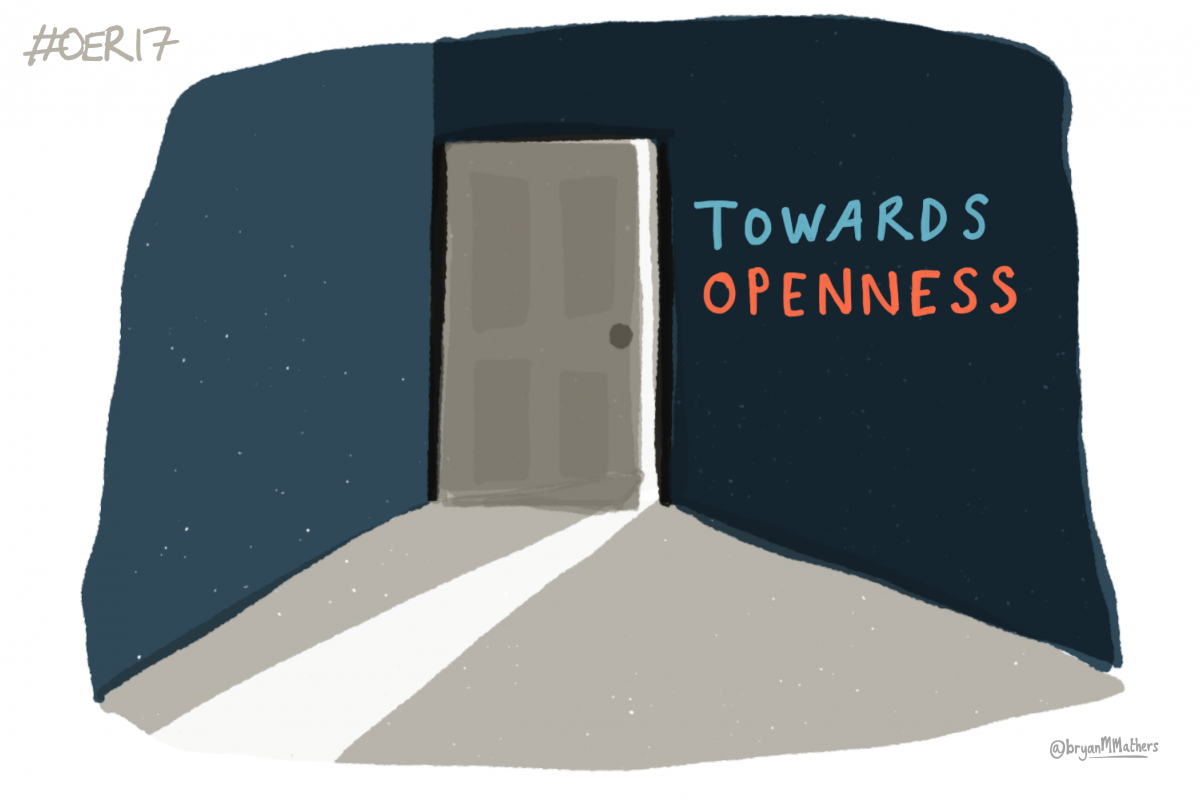I am not sure why, but it took some serious licorice intake to overcome my inertia in order to write something reflecting the Towards Openness workshop I co-facilitated at #OER17. It might be that the impressions and ideas are hard to sort out, but you have to start somewhere. What this shows, though, is that we somehow seem to have hit a nerve. People I admire for their work have responded to the theme of safety in open online learning in ways that I would have never expected. We had provocateurs who took time and effort in coming up with mind-boggling provocations, we had fantastic onsite participants who came up with interventions to marvel at (find all resources on our website), Frances Bell and Jim Groom blogged about the workshop in retrospect, Bryan Mathers drew (Is that an accurate description of his magic?) a couple of images during and after the workshop. We had a Missed Conversation on Virtually Connecting with onsite participants, provocateurs and others who could not make it to our session (during which I accidentally set the frame to fixate on me, which only adds to the embarrassment of moderating an online session with people who are both smarter than me and are more eloquent conversationalists than I am). The twitter stream includes a wide range of educators. So this would be enough material, ideas and conversations to write plenty of posts about, which probably made it harder for me to start the first one.
